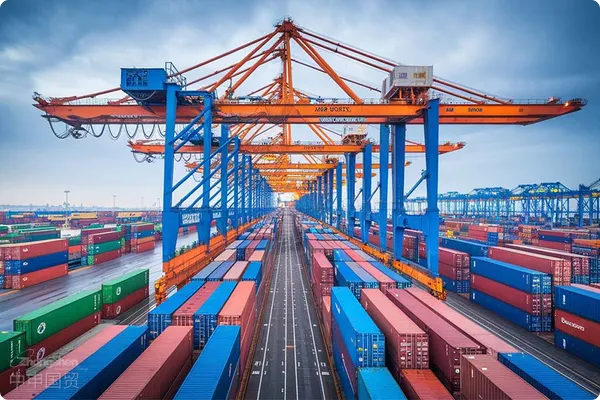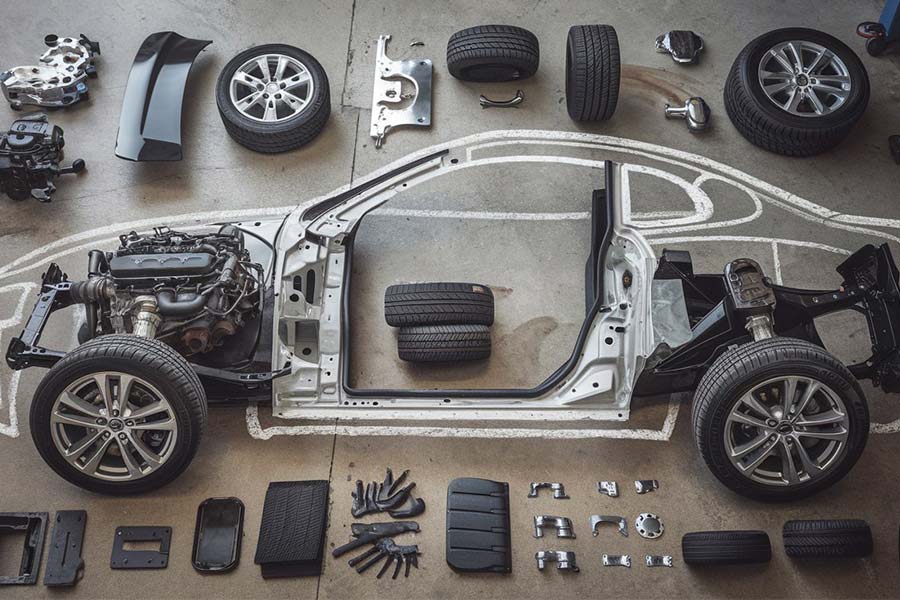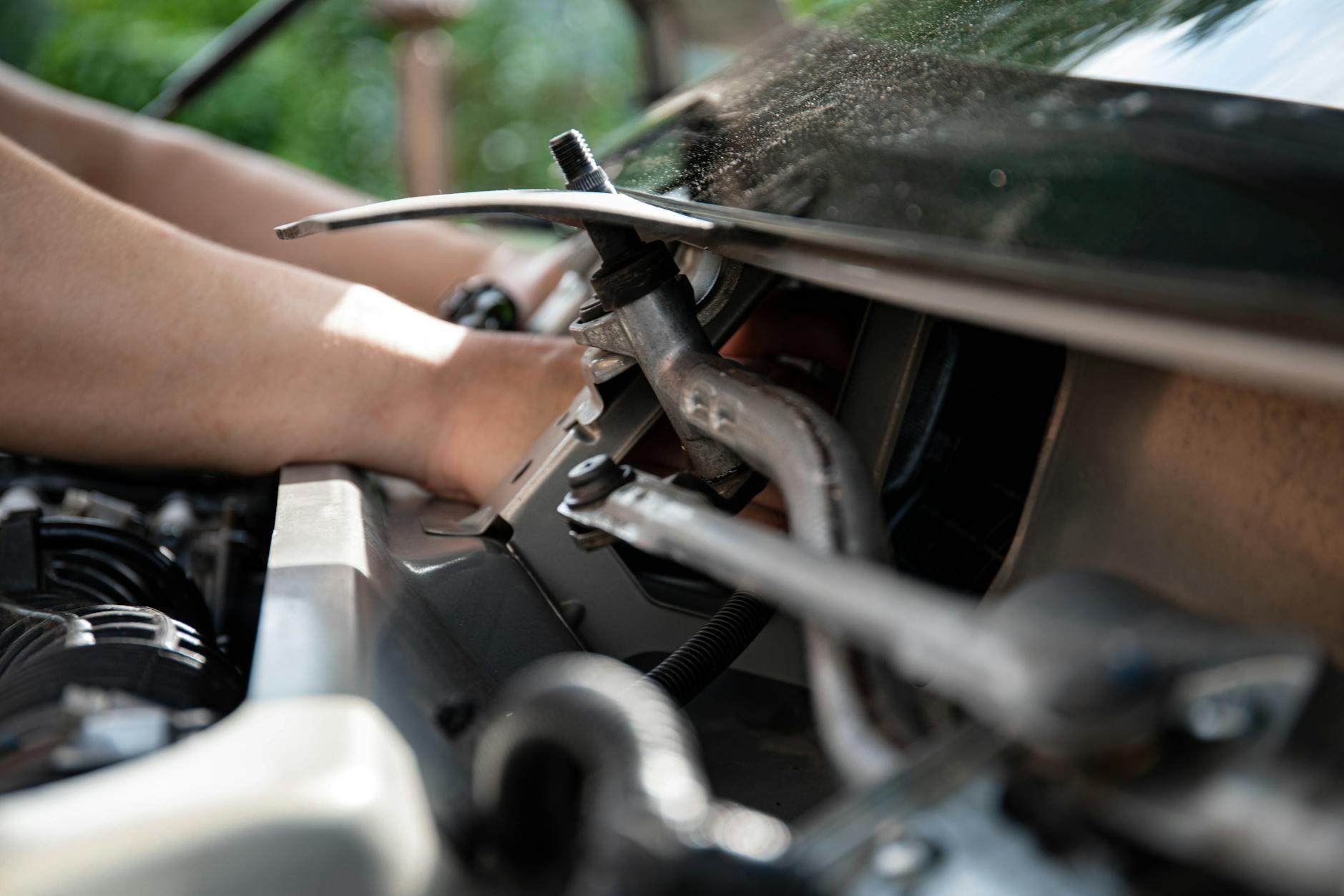- Shanghai Zhongshen International Trade Co., Ltd. - Two decades of trade agency expertise.
- Service Hotline: 139 1787 2118

Introduction
In the global automotive industry supply chain, importing auto parts from Japan is a crucial business for many companies. However, the international trade landscape is complex and ever-changing, and the import process involves multiple steps. How to complete imports efficiently and compliantly has become a key focus for numerous enterprises. This article will delve into the details of importing auto parts from Japan, providing a comprehensive guide on relevant matters.
Professional document processing and logistics arrangement
During the process of importing Japanese automotive parts, document processing is the crucial first step. Basic documents such as the commercial invoice, bill of lading, and packing list must be accurate and error-free. The commercial invoice must detail the name, specifications, quantity, and value of the parts, which not only serves as a key basis for customs declaration but also for subsequent...FX Settlement AgencyIt serves as a key support in various processes. The bill of lading, as a document of title for goods, must be filled out strictly in accordance with the actual condition of the cargo to ensure the accuracy and safety of goods transportation.
For logistics arrangements, the transportation method should be determined based on a comprehensive consideration of factors such as the nature of the parts, quantity, and delivery time. If the parts are urgently needed,Air TransportationIt may be the best option, as it is fast and can meet production needs in a timely manner, although the cost is higher. For large quantities of non-urgent parts,Maritime TransportationIt is more cost-effective. When opting for sea freight, it's important to pay attention to the scheduling of vessel departures to avoid additional costs caused by cargo backlog at ports. At the same time, choosing a reliable freight forwarding company is crucial. They can not only provide reasonable logistics solutions but also coordinate all parties involved and handle unexpected issues during transportation.
Challenges and Opportunities in the Context of International Trade
The current international trade landscape is complex, with the rise of trade protectionism, posing certain challenges to importing automotive parts from Japan. Tariff adjustments represent a major uncertainty, as some countries may increase import tariffs on automotive components to protect their domestic auto industries, directly raising import costs. Meanwhile, non-tariff barriers are also on the rise, such as stringent technical standards and environmental requirements. This necessitates that importing companies thoroughly understand relevant regulations to ensure the imported parts comply with the target market's requirements.
However, challenges also present opportunities. The continuous development of the global automotive industry has led to a growing demand for automotive components. In particular,New energyThe rise of the automotive sector has created a broader market for Japan's advanced auto parts. Additionally, the continuous advancement of regional trade agreements has facilitated imports. For instance, certain free trade agreements have lowered tariff barriers and streamlined customs clearance processes, saving costs and time for importing companies.
Unique Advantages of the Russian Market – Convenient Foreign Exchange Settlement with VTB
If the target market for imported Japanese auto parts is Russia, one major advantage must be mentioned—the convenience of foreign exchange settlement through VTB. As a key bank in Russia, VTB plays a significant role in Russian trade settlements.
The foreign exchange settlement process generally proceeds as follows: Once the goods arrive at the Russian port and the importer completes the customs clearance procedures, ownership of the goods is transferred. At this point, the importer collaborates with VTB Bank to convert the sales proceeds of the goods into the local currency at the agreed exchange rate. Compared to other banks, VTB's domestic clearing system in Russia is more efficient, enabling faster fund transfers. Moreover, due to its deep-rooted presence in Russia's trade sector, the bank offers relatively flexible scrutiny of trade backgrounds. As long as the documents are complete and the trade is genuine, the settlement process is typically smooth, significantly reducing the importer's capital recovery time and lowering financing costs.
Southeast Asian Marketimport and exportProcess and Solution
Import Process
- Market research and supplier selection: First, conduct thorough market research on Southeast Asia to understand the local demand characteristics and market prices for Japanese automotive parts. Then, identify suitable Japanese suppliers through industry exhibitions, online platforms, and other channels, evaluating their credibility, product quality, and supply capabilities.
- Sign the Contract: Sign a detailed import contract with the selected supplier, specifying terms such as product specifications, quantity, price, delivery period, and payment method. Special attention should be paid to the choice of payment method, with commonly used options includingL/C(L/C), telegraphic transfer (T/T), etc. Letters of credit are relatively secure, with banks acting as third parties to ensure smooth transactions, but the procedures are more cumbersome; telegraphic transfers are more convenient, though they carry relatively higher risks, requiring careful selection based on mutual trust and transaction circumstances.
- : After the goods arrive at the destination, agents assist enterprises in completing customs clearance and delivery.: After determining the mode of transportation, arrange cargo transportation insurance to ensure the safety of the goods during transit. The insurance clauses should be reasonably selected based on the nature of the goods and the mode of transportation. For example, marine transport generally opts for Free from Particular Average (FPA), With Particular Average (WPA), or All Risks.
- Clearance: After the goods arrive at the destination port in Southeast Asia, it is necessary to promptly complete the customs clearance procedures. You need to prepare the commercial invoice, bill of lading, packing list,It is recommended to verify through the following methods:Documents such as books should be prepared, and it is also necessary to understand local customs regulations and policies to ensure the documents meet the requirements. Some Southeast Asian countries may have special certification requirements for automotive parts. For example, Indonesia may require certain parts to comply with the local SNI standard.
- Pickup and Sales: After completing customs clearance, the goods can be picked up and transported to the designated location for sale.
Solutions
Faced with the complex regulations and certification requirements in the Southeast Asian market, companies can proactively engage with professionalforeign tradeCooperation with agency companies. Foreign trade agency companies, leveraging their extensive experience and professional expertise, can assist enterprises in accurately interpreting regulations and preparing compliant documentation. For instance, when dealing with Vietnam's environmental certification requirements for automotive parts, an agency company can guide businesses in preparing relevant test reports and other documents to ensure smooth customs clearance.
Assistance with product certification services
For automotive parts imported from Japan, different markets have varying certification requirements. In Europe, ECE certification may be required; in the United States, DOT certification must be met, among others. Although our company does not directly handle certification services, we provide clients with detailed certification information, informing them of the required certification types, certification bodies, and certification processes. Additionally, we assist clients in preparing the necessary documentation for certification, such as product manuals and test reports, and facilitate communication and coordination with certification agencies to ensure a smooth certification process.
Conclusion
Although importing automotive parts from Japan faces challenges posed by the international trade environment, companies can achieve strong development in this field through professional documentation handling, rational logistics arrangements, leveraging the advantages of various markets, and actively meeting certification requirements. It is hoped that this article can provide valuable references for businesses engaged in related operations, assisting them in smoothly navigating the journey of importing Japanese automotive parts.
Related Recommendations
? 2025. All Rights Reserved. Shanghai ICP No. 2023007705-2  PSB Record: Shanghai No.31011502009912
PSB Record: Shanghai No.31011502009912









